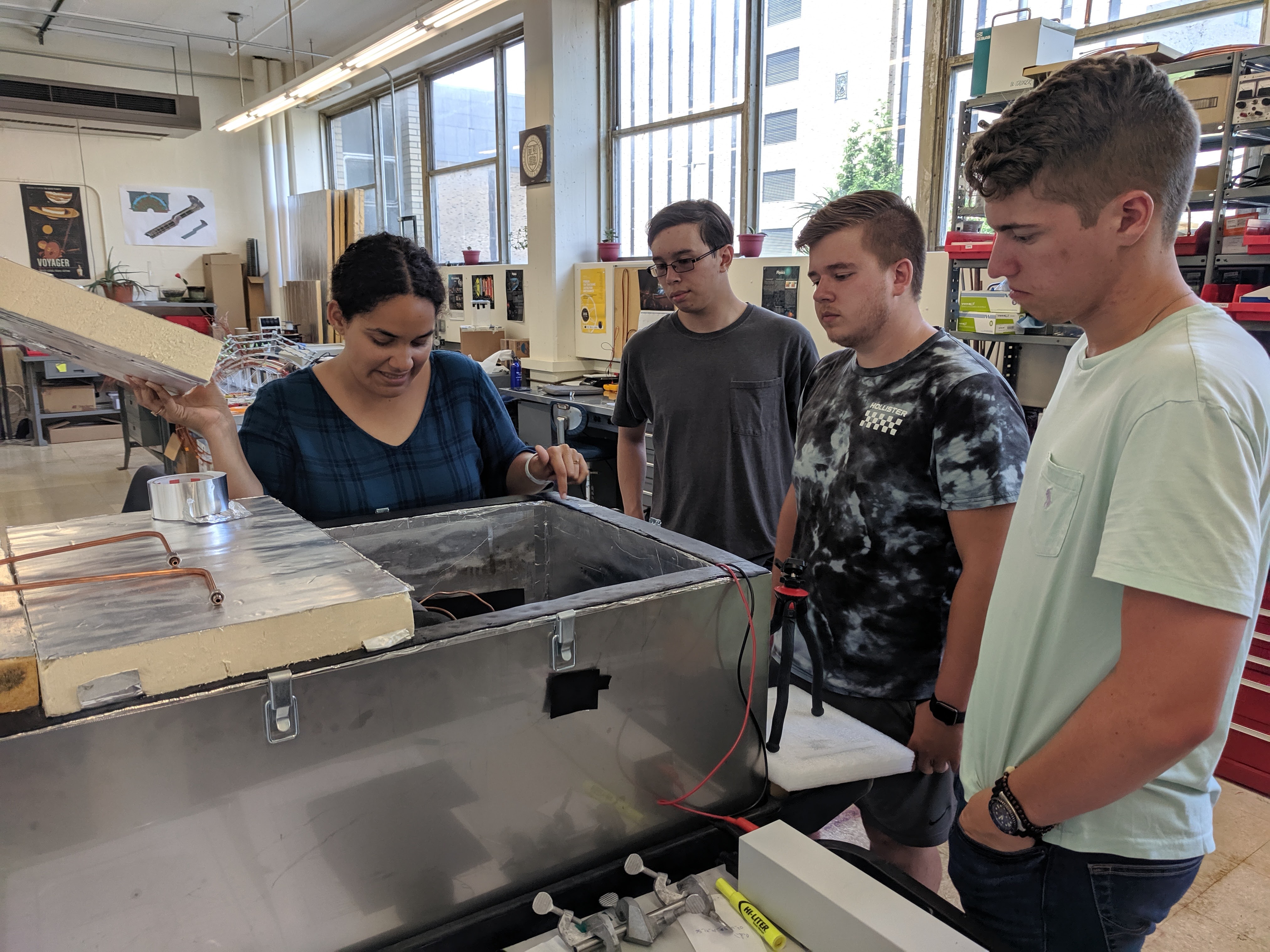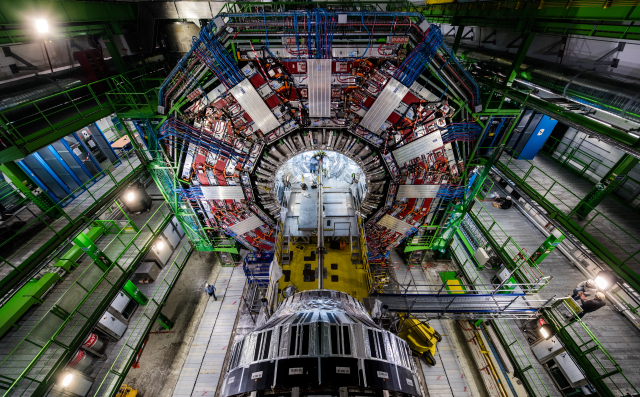
CMS Summer Internship Program for Underrepresented Minority Undergraduate Students
Would you like to be a part of the diverse, international team collaborating to upgrade the largest and most powerful particle accelerator in the world?
The CMS MREFC Undergraduate Summer Internship program is aimed at promoting diversity, equity, and inclusion in the STEM fields. Students from underrepresented minority groups are encouraged to apply to this Internship.

- Contribute to new discoveries in fundamental science.
- Learn about high-energy physics at the forefront of the discipline.
- Experience hands-on hardware development at one of the prestigious U.S. CMS Institutions.
- Collaborate with diverse scientists upgrading cutting-edge scientific research instrumentation.
 The Compact Muon Solenoid Upgrade (CMS) Major Research Equipment and Facility Construction (MREFC) Project is a unique and exciting project to upgrade the CMS detector at the Large Hadron Collider (LHC) at CERN. The LHC is the largest and most powerful particle accelerator in the world. Upgrades will enable the CMS detector to work at higher intensity and extend our reach in the search for New Physics.
Scientific research at the LHC seeks to investigate the fundamental characteristics of the forces and elementary particles that make up the universe. It does this by colliding energetic beams of protons along a 17-mile ring and studying the resulting collisions with extremely complex detectors, each consisting of thousands of tons of instrumentation and machinery.
Thirty-three U.S. institutions of higher education are collaborating on the upgrade project. Principal Investigators across these institutions are working on different aspects of the project; ultimately the collaboration will deliver hardware components to be installed directly on the CMS detector in 2027.
The Compact Muon Solenoid Upgrade (CMS) Major Research Equipment and Facility Construction (MREFC) Project is a unique and exciting project to upgrade the CMS detector at the Large Hadron Collider (LHC) at CERN. The LHC is the largest and most powerful particle accelerator in the world. Upgrades will enable the CMS detector to work at higher intensity and extend our reach in the search for New Physics.
Scientific research at the LHC seeks to investigate the fundamental characteristics of the forces and elementary particles that make up the universe. It does this by colliding energetic beams of protons along a 17-mile ring and studying the resulting collisions with extremely complex detectors, each consisting of thousands of tons of instrumentation and machinery.
Thirty-three U.S. institutions of higher education are collaborating on the upgrade project. Principal Investigators across these institutions are working on different aspects of the project; ultimately the collaboration will deliver hardware components to be installed directly on the CMS detector in 2027.
Internships:
Project leaders seek to hire several undergraduate students to work on various development teams throughout the summer. Internship positions are full-time (39 hrs/wk) and involve hands-on development of hardware components performed in an on-campus laboratory. The prospective summer 2024 projects include (final locations subject to change):- Purdue University (West Lafayette, IN) - Student will work on pixel detector mechanics and module construction.
- The Ohio State University (Columbus, OH) - Students will participate in testing silicon pixel detector modules that are being produced for the CMS TFPX detector being constructed for the HL-LHC. Student will help develop, implement, and carry out debugging, characterization, and calibration of these modules.
- Kansas State University (Manhattan, KA) - Students will operate the wafer probe station and test pixel detector read-out chips on wafers. Some experience in python programming will be beneficial for this position.
- University of Tennessee (Knoxville, TN) - Students will help test the inner tracker sensor chip and conduct studies with particle beams.
Eligibility:
- No prior experience in this area of specialty is required. Training and mentorship will be provided.
- Qualifications include a C or higher overall GPA (2.0 / 4.0 GPA), an interest in high-energy physics, and a willingness to learn new skills.
- The Internship program is open only to US citizens and permanent residents. If accepted, you will be required to show proof of citizenship or permanent residency.
- This program is intended primarily for sophomore and junior students in science and engineering. In exceptional cases first year students could have enough familiarity with physics, engineering, or computer science to profit from their research experience.
- Students who have not yet enrolled as undergraduates are not eligible. In some cases seniors may be considered, depending on employment rules at the hosting institutions (in some cases graduating seniors cannot be appointed in undergraduate internship positions).
